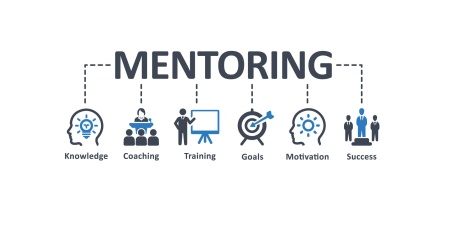A Generation X (born 1965-1985) sales rep asked me whether I thought social media was an effective tool for sales prospecting. He found his experience with Facebook, where he spent an inordinate amount of time reading about family and friends, to be counter-productive from a business perspective. As a Baby Boomer (born 1944-1964), I did not grow up with social media but I have grown along with it and could offer the rep some insights.
I was recently reminded of social media’s critical importance to marketing when asked by Vicara Books, the publisher of my latest book, how many hits I was getting on my website. Vicara explained that if I wanted to be successful in writing, selling books and public speaking — my current endeavors — I’d better beat a path to a “social selling” consultant.
Social media is designed to spread the word quickly about the latest ‘anything.’ When I teach attendees in my Selling for Success program how to develop ‘pain’ (the need to buy), social media tools come to mind. A well-done YouTube video can move your client from a position of feeling comfortable with the status quo to realizing he/she is missing out on something they really need to succeed.
What is social selling?
In A Sales Reps Guide to Social Selling Success, author Steven MacDonald defines social selling as the use of social media platforms to find and engage new prospects. Throughout the buying process, social media can be used to answer questions from potential customers, respond to their comments, or share content about the item or application for sale. From creating awareness of a product to helping close the deal, social media platforms can be effective tools in the sales process.
Keeping up with new sales strategies is always challenging. This is especially true today. The latest strategy – social selling – has been proven to increase company revenue by 16%. Keeping up with this trend is very important.
Wikipedia describes social selling as “the process of developing relationships as part of the sales process.” Today, relationships often are first established on social network platforms like LinkedIn, Twitter, Facebook, and Instagram.
Social selling techniques include the sharing of relevant content, interacting directly with potential buyers and customers, establishing a personal brand, and social listening. These practices all predate the internet and C2C (consumer to consumer) companies have been using them for a long time. As social selling techniques are translated into social media platforms, B2B (business to business) and B2C (business to consumer) companies are adopting many of them.
Why use social selling?
MacDonald tells us, “Sales reps that use social selling sell more and reach their targets faster. Yet, 75% of sales reps do not use it as part of their overall sales strategy. Why is it that only a few sales reps are using social selling? The reason – they don’t know how to get started. You see, social selling is more than just sharing content on LinkedIn and hoping for the leads to pour in.”
Drew Henricks’ book, 5 Ways to Use Social Media as a Sales Tool, recommends “using social media because it can improve the frequency, quality, and reach of your marketing. It is a quick and easy way to promote your business’ sales, promotions, events, and other marketing activities. One of the many benefits of social media is that you can sell your products anywhere.”
According to a Nielson report on social media, “Americans spend three times as many hours on social networking sites as they do reading email (7.6% of online time is spent reading email, while 23% is spent on social).” Even more eye opening is Nielson’s revelation that “70% of social users shop online. In other words, your customers are waiting for you on social networking sites. You have to find ways to monetize this reality.”
Here are 4 compelling reasons I have found for using social selling:
- Most of your customers do research on social media before deciding to buy. Buyers look to the sources that can give them the most valuable information on social media. According to Forrester Research, 74% of buyers purchased from the first sales rep that added value to their research.
- Building relationships is still the best way to influence. I don’t answer the phone or respond to most emails unless I already know the contact. A study by Harvard Business Review found that 90% of people never respond to a cold call. Social selling is an effective way to build relationships and makes for more calls that aren’t cold. As my favorite sales philosopher, Zig Ziglar, use to say, “You can get anything out of life, if you just help enough other people get what they want in life.”
- Social selling is a 24/7 business. Even with all the latest bells and whistles at your disposal, selling is still selling and is dependent on the size of your network. It’s been shown that social selling activities are the most efficient method of growing a prospect list, and no matter where you are or what you are doing those tools are available to work for you 24/7.
- It’s the new form of peer pressure. How many times does an associate tell you about something they saw or heard on the internet? A 2013 LinkedIn study discovered that 53% of buyers said their peer network influenced their buying decision. That was compared to only 19% the previous year (same study). Social media makes it easy to create and access the P2P (peer-to-peer) narrative, and this breeds success. Just look at the list of some of the giants that have built their business on social selling: Amazon, Alibaba (China), Best Buy, and many others including regional grocery and hardware stores who are continuing to enter the market.
How to get better at social selling
Like most of my generation, my first social media effort was getting someone to build my website. I hired a colleague from my office who created a functional website, which enabled me to sell some books. I continued to improve the site over a 10-year period using other web developers.
In researching the best social media strategy for the launch of my new book, one that would take me beyond my existing website, I found that many social media experts are specialists in various platforms. One person offered me the best website, another was good with Facebook, and still another with other social media platforms. While each expertise was appreciated, it made creating a unified approach that met my social selling needs difficult, particularly with each vendor charging separately by the hour or the job.
I was looking for someone who could do the whole job and was open to be paid commission on the results. Through a local network of friends, I found a young social media expert who was branching out and forming LLCs with people that had something valuable to sell. I became one of his clients and I now have a much-improved website, a YouTube presence, and the use of marketing tools like Mailchimp, LinkedIn, Facebook, Pinterest, etc. If your company can afford it, my advice is to hire a full-time social media specialist whose focus is on your products. If an additional staff member is not in your budget, I recommend that you look for a millennial expert who will work on commission. There are a lot of good social media consultants out there, so be diligent in your search. As social media platforms represent today’s most effective sales tools, finding the best way for your company to engage in social selling is critically important.
My recent experience taught me that social selling does not need to be difficult. It’s just selling in a new, more effective way. I’ve built my career on the premise that selling starts with building relationships. As I see it, now I have a host of new ways to create and improve those connections.










